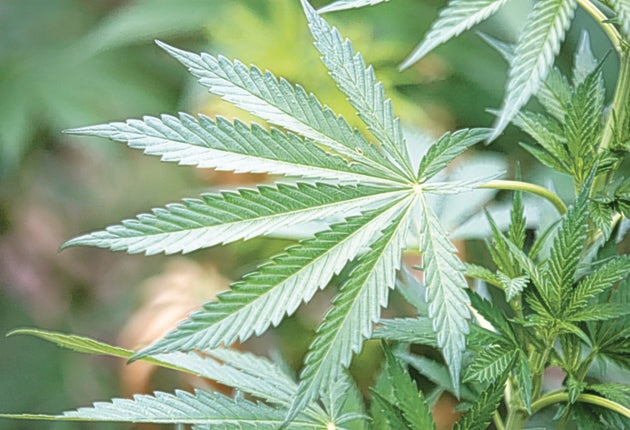Legalising and taxing cannabis could 'help cut the deficit by £1.25bn', claims study
Report attempts to quantify the financial benefit of a move to a regulated and taxed market for cannabis in England and Wales

Your support helps us to tell the story
From reproductive rights to climate change to Big Tech, The Independent is on the ground when the story is developing. Whether it's investigating the financials of Elon Musk's pro-Trump PAC or producing our latest documentary, 'The A Word', which shines a light on the American women fighting for reproductive rights, we know how important it is to parse out the facts from the messaging.
At such a critical moment in US history, we need reporters on the ground. Your donation allows us to keep sending journalists to speak to both sides of the story.
The Independent is trusted by Americans across the entire political spectrum. And unlike many other quality news outlets, we choose not to lock Americans out of our reporting and analysis with paywalls. We believe quality journalism should be available to everyone, paid for by those who can afford it.
Your support makes all the difference.Legalising and taxing cannabis could help the government cut the deficit by an estimated £1.25bn a year, a new study has claimed.
A report, by the Institute for Social and Economic Research, has for the first time attempted to quantify the financial benefit of a move to a regulated and taxed market for cannabis in England and Wales.
The study estimates that a lower cost of policing, criminal justice and drug treatment could save the country £200-300 million.
Meanwhile, tax revenue from licencing the drug could raise between £0.4-0.9 billion, according to the paper, co-authored by Stephen Pudney, professor of economics at the University of Essex.
Overall, licenced cannabis could reduce the Government deficit by between £0.5 billion and £1.25 billion, the report said.
The report compares the possible revenue from legalisation with the potential costs of regulation and health promotion initiatives.
The study also claims that the so-called "gateway effect" - the possible increase in risk of involvement in hard drugs caused by exposure to cannabis - had been a "greatly exaggerated" focus of public debate on the issue.
It is likely that consumption could rise significantly as a consequence of the switch to legal status and the lower price that results, it said.
But it is possible that average potency would fall, with consumption of the psychoactive ingredient THC rising much less than consumption of the drug itself, and possibly even declining, according to the report.
Prof Pudney said the report was not a definitive attempt to put a price on the cannabis market, but looked to outline factors to consider if such a policy were to be introduced.
"Two important areas of uncertainty where progress may be possible are drug-related crime and drug demand behaviour, but it would require greater sustained investments in data and research effort," he said.
Amanda Feilding, director of the Beckley Foundation, which campaigns for scientifically based reform of drugs policy and commissioned the report, said :"In these times of economic crisis, it is essential to examine the possibilities of more cost-effective drug policy.
"Our present policies based on prohibition have proved to be a failure at every level. Users are not protected, it puts one of the biggest industries in the world in the hands of criminal cartels, it criminalises millions of users, casting a shadow over their future, and it creates violence and instability, particularly in producer and transit countries."
Additional reporting by the Press Association
Join our commenting forum
Join thought-provoking conversations, follow other Independent readers and see their replies
Comments